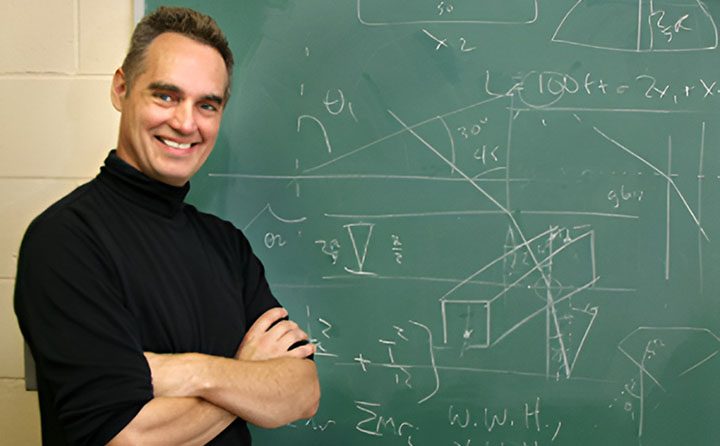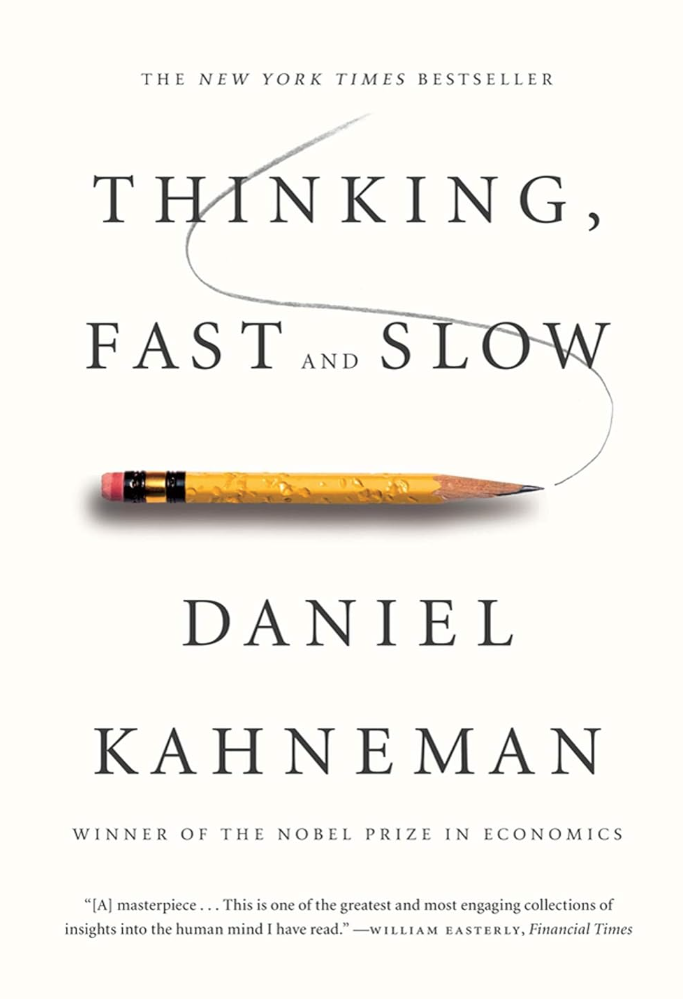For Baldwin Wallace University physics professor Dr. Edwin Meyer, providing students with ample opportunities to develop their mental strength and stamina has been a top priority..

My emphasis on critical thinking was born out of my experience during my first career as a research scientist in private industry. When my bosses asked me to help recruit others like me, I was disappointed to find that most applicants could recite facts but not struggle with and solve problems.
 The Nobel Prize-winning scientist Daniel Kahneman expands on this dilemma in his book, "Thinking, Fast and Slow," where he discusses two thinking systems in the brain, calling them System I and System II.
The Nobel Prize-winning scientist Daniel Kahneman expands on this dilemma in his book, "Thinking, Fast and Slow," where he discusses two thinking systems in the brain, calling them System I and System II.
System I is fast, and it is crucial to our survival. System I is how you feel. It rapidly makes sense of the world around us based on the data available. System I is always confidently jumping to conclusions. System I never considers information that is not immediately available. System I is on the lookout for danger and triggers fight or flight decisions. System I is stimulus - response. System I does not ponder or wonder. System I is automatic, unconscious thought. Most people use System I the majority of the time.
On the other hand, engaging System II is effortful. System II is deliberate, logical thought. System II is critical thinking and problem-solving. There is physiological evidence that shows when System II is engaged. Digestion slows. Pupils dilate. System I is shut down. Hearing, vision and general awareness of surroundings, including possible threats, are attenuated. You are "in the tank," thinking deeply; trying to reach a new level of understanding; daydreaming. Time stands still. Psychologists call this wandering in your own mind a state of "flow."
System I never produces a new idea or an "AHA!" moment, and System II would quickly be overwhelmed if it had to negotiate a typical adult weekday morning that involves getting kids ready for school.
Any effort to prepare today's youth to be contributing members of society must involve developing both System I and System II. Unfortunately, humans have evolved a natural resistance to engage System II, especially when they are not alone in a safe environment, and the formal education system is drifting away from System II thought.
Many teachers can see the natural reluctance of the students to engage System II, so they give the students System I assignments. For example, knowing the names for things and following some prescribed protocol to get the answer. While this rote task avoids the potential for frustration, struggle, and lost confidence, it also avoids the development of System II thinking.
Without System II thinking, a person will not be able to think hard to make an important decision. Without System II, a person will be vulnerable to marketing and to charlatans that are experts at exploiting System I. A good example is advertising, which is almost 100% focused on making your System I "feel good" about the product — not trying to get your System II to carefully, logically perform a cost/benefit analysis.
Honing System II is like developing any talent or skill. It takes hard work and struggle. However, many students don't want to struggle. Many teachers don't want their students to struggle. Most parents don't want their children to struggle. The vast majority of college administrators don't want students to struggle.
There is no progress without struggle.
A version of this column first appeared on cleveland.com and in The SUN Newspapers. Dr. Ed Meyer is an associate professor of physics at Baldwin Wallace University. He also leads workshops for educators, students and business professionals through BW and his Summer Gedanken Institute for Problem Solving. He spent 10 years as a research scientist for Imperial Chemical Industries (ICI). His mantra is "It's not so much what you know, but what you can figure out." Learn more at edmeyer.phd.